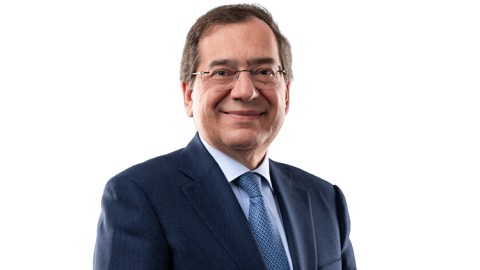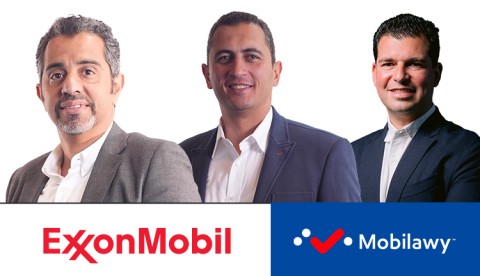Why has decarbonization become important for the oil & gas industry?
The O&G industry is a primary contributor to greenhouse gas (GHG) emissions, with an estimated 75% of all GHG emissions coming from the production and consumption of energy. For upstream O&G, the bulk (~6%) of global GHG emissions come directly from fugitive emissions and flaring, of which methane (CH4) is the primary constituent. Since hydrocarbons will remain an important, low cost and dominant part of the global energy mix for years to come, it is incumbent on the industry to adopt new technologies & workflows to decarbonize and produce oil & gas more sustainably. ‘Zero Flare’ is just one key example of decarbonization, for which Egypt is a leader and visionary country.
What services do you provide to support oil and gas decarbonization?
During FII 2021 in Riyadh, KSA, NESR announced its ESG Impact segment in which the company would leverage its existing ‘open technology platform’ to pursue game-changing decarbonization technology to import into the MENA region. The key areas of focus for ESG Impact are 1) Water Stewardship, 2) Flare Gas Elimination, 3) Heat Capture & New Energies, and 4) Emissions Detection. NESR’s aim is to harness what the O&G has historically viewed as waste streams (produced water, associated gas, effluent heat) and turn them into value streams for internal use (circular economy) and/or community delivery (e.g. water for tree planting).
How are you approaching the energy transition?
It is NESR’s view that the energy transition will take time, hence the focus on “low hanging fruit” decarbonization of existing hydrocarbon production. However, NESR is also driving projects in carbon capture & storage (CCS) to aid in this decarbonization immediately. Additionally, the company is heavily involved in geothermal (e.g. Indonesia), and NESR teams are constantly evaluating new energies such as green, blue & turquoise hydrogen for future energy transition market opportunities.
How can you support Egypt in reaching its decarbonization goals?
Through NESR’s ESG Impact segment, the company has already engaged with multiple key operators in optimizing workflows around water (eliminating water dumping and treating this produced water to fresh water for the community), flare gas (capturing and processing gas for power, liquids, and other useful byproducts), and heat (to subsidize power consumption at the field level). Additionally, NESR is bringing emissions detection technology to Egypt, to aid operators in establishing a reliable GHG emissions baseline for reporting purposes and to measure the progress of decarbonization over time.
What is the roadmap for NESR to decarbonize its business and assets?
NESR aims to grow its external (client facing) decarbonization business to become the largest reporting segment by 2030. Internally, the company is strategically deploying solar and water treatment technologies, and transforming its supply chain & procurement practices to decarbonize its overall asset base.
6-As the world needs to face climate change, and many are trying to take steps to decarbonize their businesses, do you see a major change in the mindset of your clients today compared to your early days when setting up the early days of NESR’s operations?
The industry mindset is changing, but not nearly quickly enough to meet global decarbonization ambitions and also NESR’s own internal goals. Additional stakeholders such as community representatives, governmental agencies & ministries, and even non-governmental organizations (NGOs) can contribute to the dialogue and help aid in the decarbonization of O&G through regulation, project financing, participation in carbon markets, and other drivers.
What are the main challenges you would like to see resolved in the coming years to make decarbonization more feasible?
Global connectivity of the world economy will help stakeholders across the energy & industrial value chain better coordinate decarbonization efforts, but near-term pricing mechanisms are also needed to “jump-start” these trends. Voluntary Carbon Markets (VCMs) can play an important role by matching hungry ‘ESG Capital’ globally with decarbonization technology and projects in the MENA region. The challenges facing VCM proliferation are mainly around the standards and methodologies (or lack thereof) used in carbon accounting and project offset generation, so improvement and further standardization of these methodologies (e.g. standardization of emissions baseline & measurement practices) could provide better clarity for decarbonization project owners, and more certainty for project investment.
What role do you think digitalization plays in decarbonization?
In addition to measuring and quantifying industry emissions more reliably (rather than relying on hypothetical emissions factors and self-reported figures), digitalization and AI can play a role in the optimization of industry operations & supply chains, to reduce waste and lower carbon emissions.
What are your insights for the decarbonization day at COP27?
NESR would be honored to participate in the decarbonization day of COP27, and share learnings from key technologies and case studies that hold vast decarbonization implications for the energy industry (e.g. Flare-to-Forest project concept which aims to simultaneously eliminate flaring & produced water dumping, while generating much-needed freshwater and recovering valuable minerals for use in the community (e.g. tree planting) and other industries (e.g. salt industry)). Just as the Energy Services subsector is the driving force behind hydrocarbon production, so too can NESR be a driving force behind O&G decarbonization, and do so by empowering local engineers & manufacturers as the National Champion of MENA. We would be a productive contributor to the decarbonization day dialogue, because we are driving actual, complex decarbonization projects in the world’s most carbon-intensive industry, an industry that has both the most to prove to the world (in terms of ESG commitment) and also the most potential to drive positive change.
What do you look forward to gaining in COP27?
NESR looks forward to gaining insights and learnings from other industries and other stakeholders within the O&G industry. Too often is technological change stymied by lack of communication, information silos, or exclusion of stakeholders in the discussion. The energy services industry must contribute positively to the COP27 discourse because only the O&G industry can achieve such vast decarbonization progress while also providing reliable, affordable energy to the most vulnerable populations around the world. We look forward to learning and sharing our own learnings.








